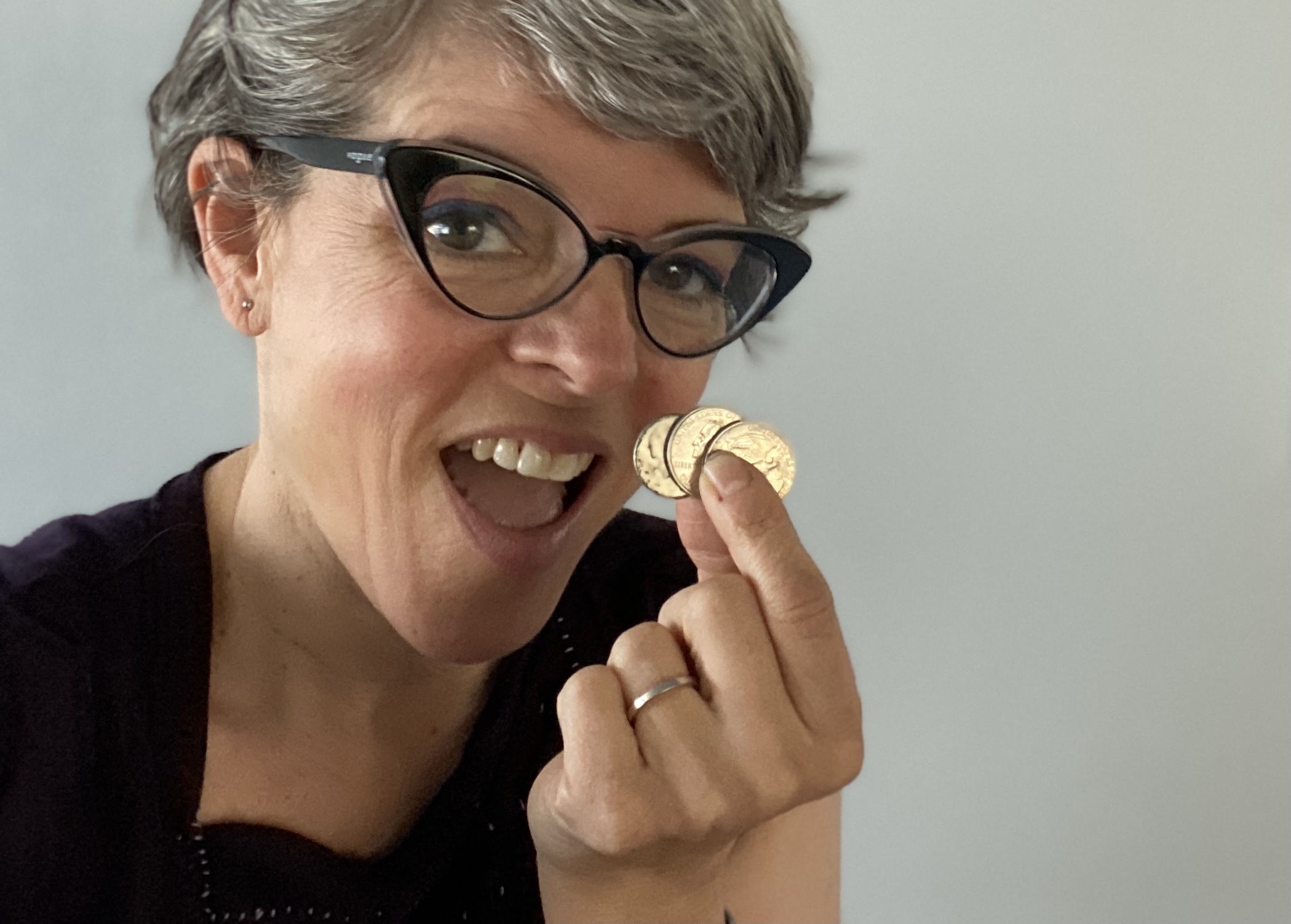
I’m a recovering “on-then-off-again” change-maker and I feel like I get better at staying with a focus as each year passes.
Why do we just want to turn off after a burst of energy?
In short, it was bottled up. Once you let loose your burst it’s like all the bubbles go out of your soda bottle. It’s a relief, but without something to anchor the change, you’re not inclined to keep it up.
But here’s the thing … those soda bubbles are just going to build up again. And while they do, you’re not going to feel so great if you don’t keep acting on that effervescence that is YOU.
Now shopping may not be your raison d’être, but it’s certainly something you do at least once a week.
If you’re keeping tabs on the news, you’re probably starting to notice there’s more packaging than you want to see wrapped around what you buy, or you wonder about how the animals were treated before your burger was made. There is some pressure building up, something has to be done.
You think, maybe I’ll start eating out less.
And you do, for awhile. But then the old habits kick in and, zoom, you’re back where you were, kinda. Only this time you’re returning after feeling yourself acting on how you care about things. You care that there is too much waste. You care about animals. That effervescence from acting on caring and then stuffing it and getting togo food are starting to feel super stuffed in a way too small container.
When you return to old habits, it’s like you’re getting punished for trying. And in a way, you are. We are pre-wired to keep moving, keep growing, keep exploring. One solid example of this is over 70% of your body is made of muscle.
So how do you keep up the motivation so you don’t have to stuff all that bubbliness any longer?
In general, you have to feel abundant while you make the changes and then anchor the change with a new result that is grander than any result you could have imagined at the outset.
So often we associate change with sacrifice. I honestly don’t know where that notion came from, but what I do know, is that if the change itself isn’t fun, who wants to stick with it to get to the grand result?
Here are the four simple steps keep change happening in your life that is invigorating:
1. So when you, say, decide to not eat togo food so often, and want to still feel great, think about your options. Just getting above the dilemma far enough to feel like you have choice is calming and an immediate reward for you. Brain-wise, getting curious triggers dopamine, so that’s going to make you feel better right away.
2. When you consider your options, you get to pick which one feels great. That’s another happy-maker because now you’re engaging the decision making part of your brain which means dopamine. Also, you’re going to get some oxytocin because you’re acting on some self-love by asking what is best for you—great job!
3. Acting on your choices is also mood boost. No longer are you feeling stuck in the mud of indecision. You’re free, engaged, and doing right by you. Again, more dopamine and oxytocin for your brain.
4. Here’s the best part—your changing could mean an opportunity for something even grander—this is the anchor. Here’s how that works.
Continuing with the togo food example: you decide to cook food from scratch more and reuse your own containers. Now you cut out the packaging, and you’re buying meat from known sources. In addition, you’re spending less time and money.
- Time, because you don’t have to stand in line every single meal. While you cook for yourself you can do other things, like get a phone call out of the way or listen to a podcast you’ve been dying to hear.
- Money because home cooked food is always cheaper than eating out.
With this new abundance, you can take the time to give some of your newly saved money away. You started this process to cut down on packaging and get better meat, the bonuses are saving time and money. That is abundance, why not share it a bit?
Try out using some of that free time you gave yourself to find a charity that has a direct relationship to your lifestyle. Like if you love hamburgers (I do) and know that you have eaten from factory farms, you can donate 50% of the money you saved to animal rights groups that help animals who are treated poorly in those conditions. Enjoy capitalizing on what started this whole thing: your caring—that effervescence that started down this whole path. So now, because you decided to cook food at home, you are making animals’ lives better than they would have been if you just cooked food at home and pocketed 100% of the savings. Trust me, you’ll recall how you made cooking at home bigger than just about you the next time you shop and probably save even more time and money so you can give again. Why?
Sharing your abundance is another way to not only get dopamine and oxytocin, you also get serotonin and endorphins. I call this group of four mood-boosting neurotransmitters the DOSE. Your brain loves this stuff. Science has shown that people who give live a much higher quality of life and also get richer when they give. Why? Because giving is being a better provider, and being a better provider means having more money and time to give. We get more efficient with our time and money the more we give. What a fantastic positive feedback loop.
So that’s my $.02. Try out the four steps with just one change you want to make and see what you think!

